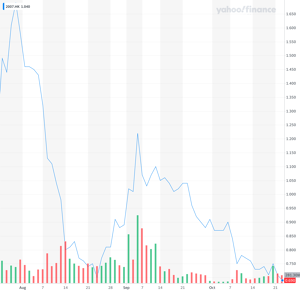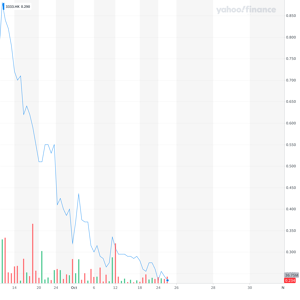Tavex uses cookies to ensure website functionality and improve your user experience. Collecting data from cookies helps us provide the best experience for you, keeps your account secure and allows us to personalise advert content. You can find out more in our cookie policy.
Please select what cookies you allow us to use
Cookies are small files of letters and digits downloaded and saved on your computer or another device (for instance, a mobile phone, a tablet) and saved in your browser while you visit a website. They can be used to track the pages you visit on the website, save the information you enter or remember your preferences such as language settings as long as you’re browsing the website.
| Cookie name | Cookie description | Cookie duration |
|---|---|---|
| tavex_cookie_consent | Stores cookie consent options selected | 60 weeks |
| tavex_customer | Tavex customer ID | 30 days |
| wp-wpml_current_language | Stores selected language | 1 day |
| AWSALB | AWS ALB sticky session cookie | 6 days |
| AWSALBCORS | AWS ALB sticky session cookie | 6 days |
| NO_CACHE | Used to disable page caching | 1 day |
| PHPSESSID | Identifier for PHP session | Session |
| latest_news | Helps to keep notifications relevant by storing the latest news shown | 29 days |
| latest_news_flash | Helps to keep notifications relevant by storing the latest news shown | 29 days |
| tavex_recently_viewed_products | List of recently viewed products | 1 day |
| tavex_compare_amount | Number of items in product comparison view | 1 day |
| Cookie name | Cookie description | Cookie duration |
|---|---|---|
| chart-widget-tab-*-*-* | Remembers last chart options (i.e currency, time period, etc) | 29 days |
| archive_layout | Stores selected product layout on category pages | 1 day |
| Cookie name | Cookie description | Cookie duration |
|---|---|---|
| cartstack.com-* | Used for tracking abandoned shopping carts | 1 year |
| _omappvp | Used by OptinMonster for determining new vs. returning visitors. Expires in 11 years | 11 years |
| _omappvs | Used by OptinMonster for determining when a new visitor becomes a returning visitor | Session |
| om* | Used by OptinMonster to track interactions with campaigns | Persistent |
| Cookie name | Cookie description | Cookie duration |
|---|---|---|
| _ga | Used to distinguish users | 2 years |
| _gid | Used to distinguish users | 24 hours |
| _ga_* | Used to persist session state | 2 years |
| _gac_* | Contains campaign related information | 90 days |
| _gat_gtag_* | Used to throttle request rate | 1 minute |
| _fbc | Facebook advertisement cookie | 2 years |
| _fbp | Facebook cookie for distinguishing unique users | 2 years |
The Chinese property market is in trouble. Why could it have a global impact?

When discussing the Chinese economy, we are accustomed to thinking that export is the most important factor. So, why should the Chinese housing crisis be of interest to someone who does not live in Beijing? Actually, it could be critical for all of us. Or it cannot be. Let us try to figure out what is going on in the Chinese property sector and how it is influencing the rest of the world.
China is synonymous with massive exports and equally massive manufacturing capabilities. However, the local housing market is a massive part of the economy. It accounts for nearly 30% of China’s GDP.
For decades, this sector has been linked to the country’s economic growth. The scale of house construction enabled the creation of jobs and increased middle-class investment in the local economy. Property purchases boosted it as well. In other words, this chain, which included buyers, workers, developers, Chinese banks, and investment trusts, was a major growth driver for China.
But things have changed. The rate of population growth has slowed. Strong Covid restrictions added some complications after that, you know. Furthermore, the local government restricted the capabilities of the Chinese shadow banking sector, which is closely linked to local developers. All of these factors contributed to the Chinese economy hitting the emergency brake.
When authorities lifted the pandemic restrictions in 2023, many experts predicted that the economy would recover. However, this did not occur. The local market is in crisis, and the real estate sector is at the epicentre.
The supply ended up being greater than the demand. Although house prices fell, developers’ obligations did not go away. As a result, top Chinese home builders are deeply in debt. Consider what is happening with some of their stocks.
Country Garden, China’s largest developer, is thought to be approaching default. And its stock is nearing the bottom.

Source: Yahoo
The other prominent developer, China Evergrande, filed for bankruptcy in the USA. Also, this stock trading was suspended for 17 months and restarted only at the end of August 2023. You see what happened after that.

Source: Yahoo
Investment trusts and banks are two critical points here. The first frequently invested in real estate and are now struggling to meet their obligations to investors. The second group is in danger of running out of money to lend to developers.
Who else is in danger? There are Chinese companies’ shareholders, exporters, and firms with ties to China. In other words, because of the size of the Chinese economy, we are all linked. At the very least, it may have an impact on price increases and supply issues. The economies of countries such as Australia and New Zealand may also suffer as a result. China was and continues to be an important export partner for them.
At the same time, the foregoing does not imply that China’s economy will collapse sooner. Local officials use a variety of measures to stabilise the situation and kick-start the economy. Maybe they’ll be able to handle it without too much trouble.
The Chinese housing crisis, which has its roots in a combination of slowing population growth, stringent Covid restrictions, and changes in the banking sector, has a ripple effect that extends beyond its borders. While the local property sector is a significant portion of China’s GDP, its current turmoil threatens not only domestic entities like banks, developers, and investment trusts but also international stakeholders. Countries like Australia and New Zealand, which rely heavily on China for exports, may feel the pinch. However, it’s worth noting that China’s authorities are actively taking measures to stabilize the economy, leaving the future trajectory uncertain.

















